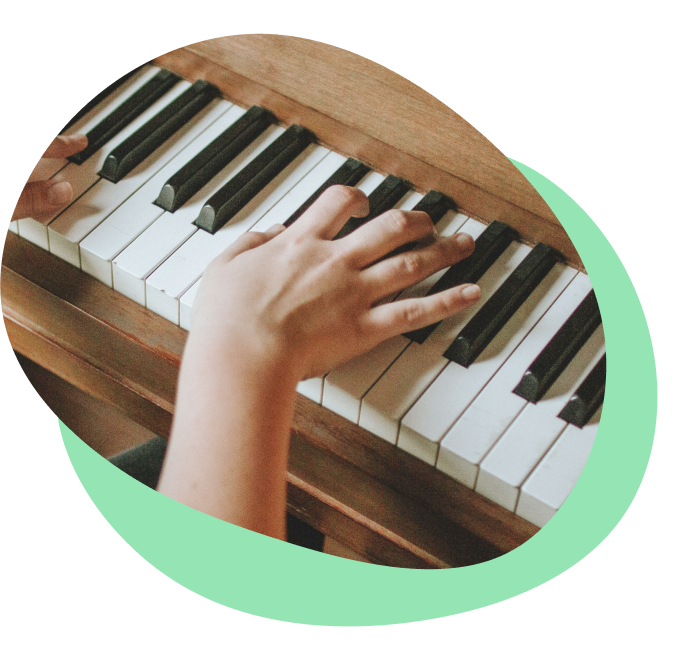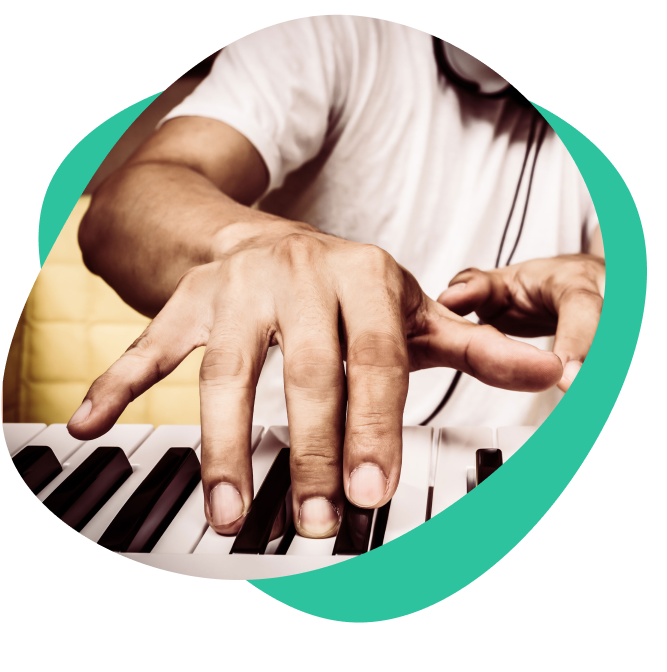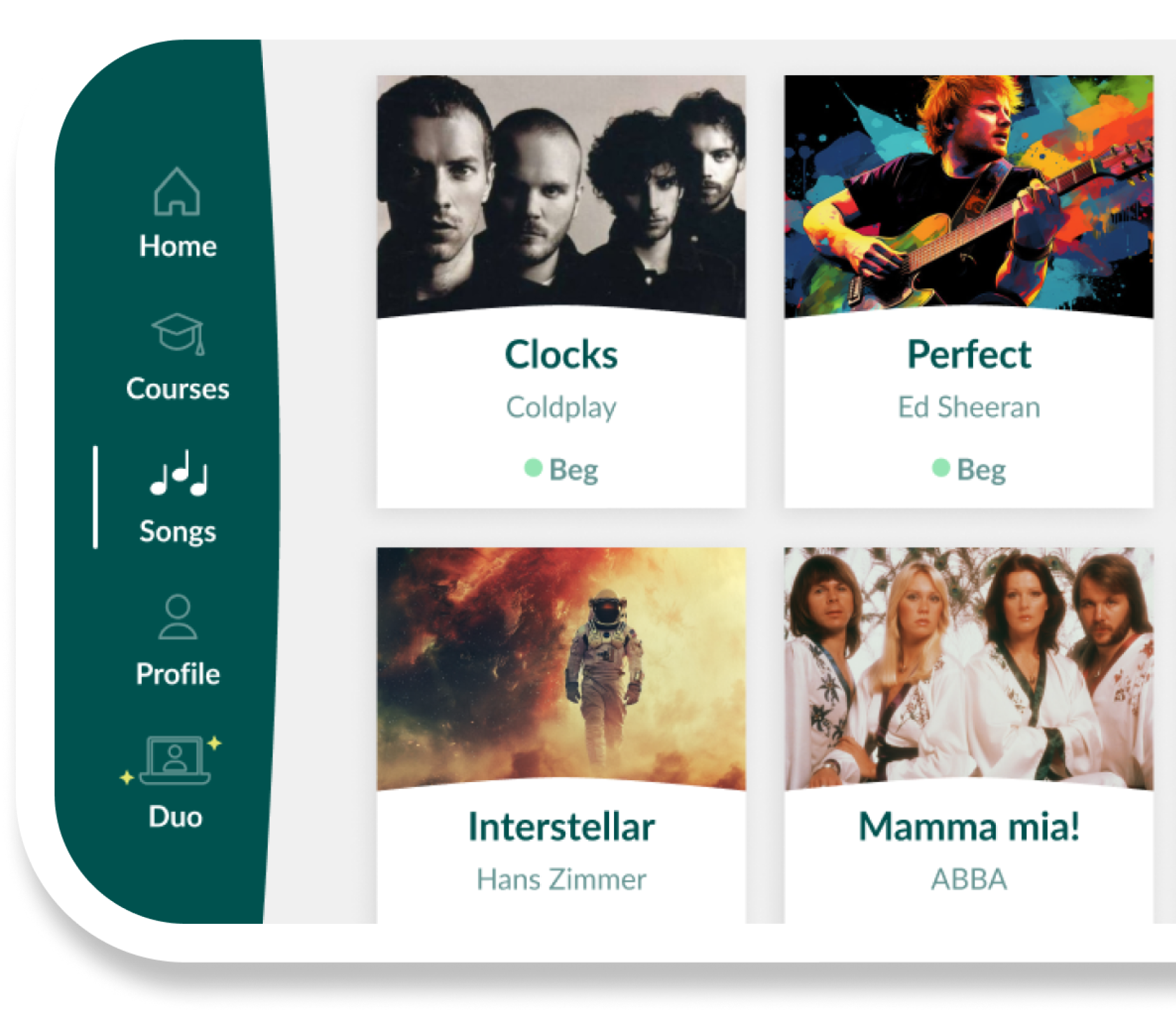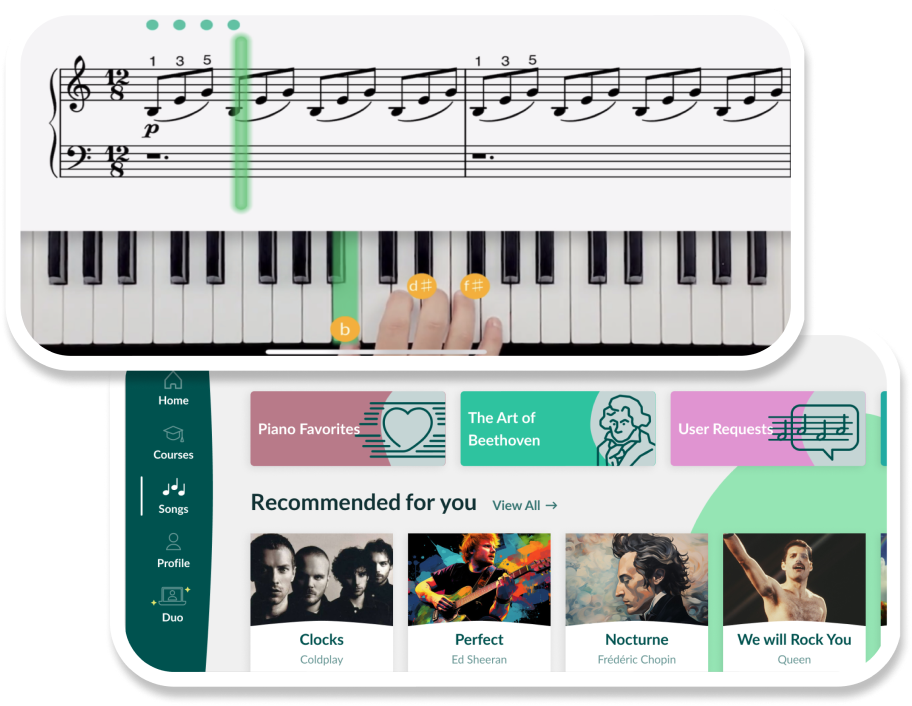Learning to play the piano can be a fun and invigorating exercise for your mind. However, many of us soon come across a period where we just cannot improve our playing skills no matter how hard we try. This is what we call a learning plateau. Whether it is our work or our personal life, something always intervenes in the learning process after a while. If this does not happen, the hobby stops being new and exciting and many of us simply get bored with it. Thus, our journey into the musical foray comes to an abrupt and unexpected halt.
However, this must not always be the case.It doesn’t matter if you want to learn the piano as a fun hobby or become a serious musician like Beethoven. As long as you have motivation, there are a couple of simple habits that you can develop to continue your process of learning. Read this article to find out more about how you can break through this stagnant period of productivity that comes with every learning process.
To combat the learning plateaus, we must first understand why they occur in the first place.
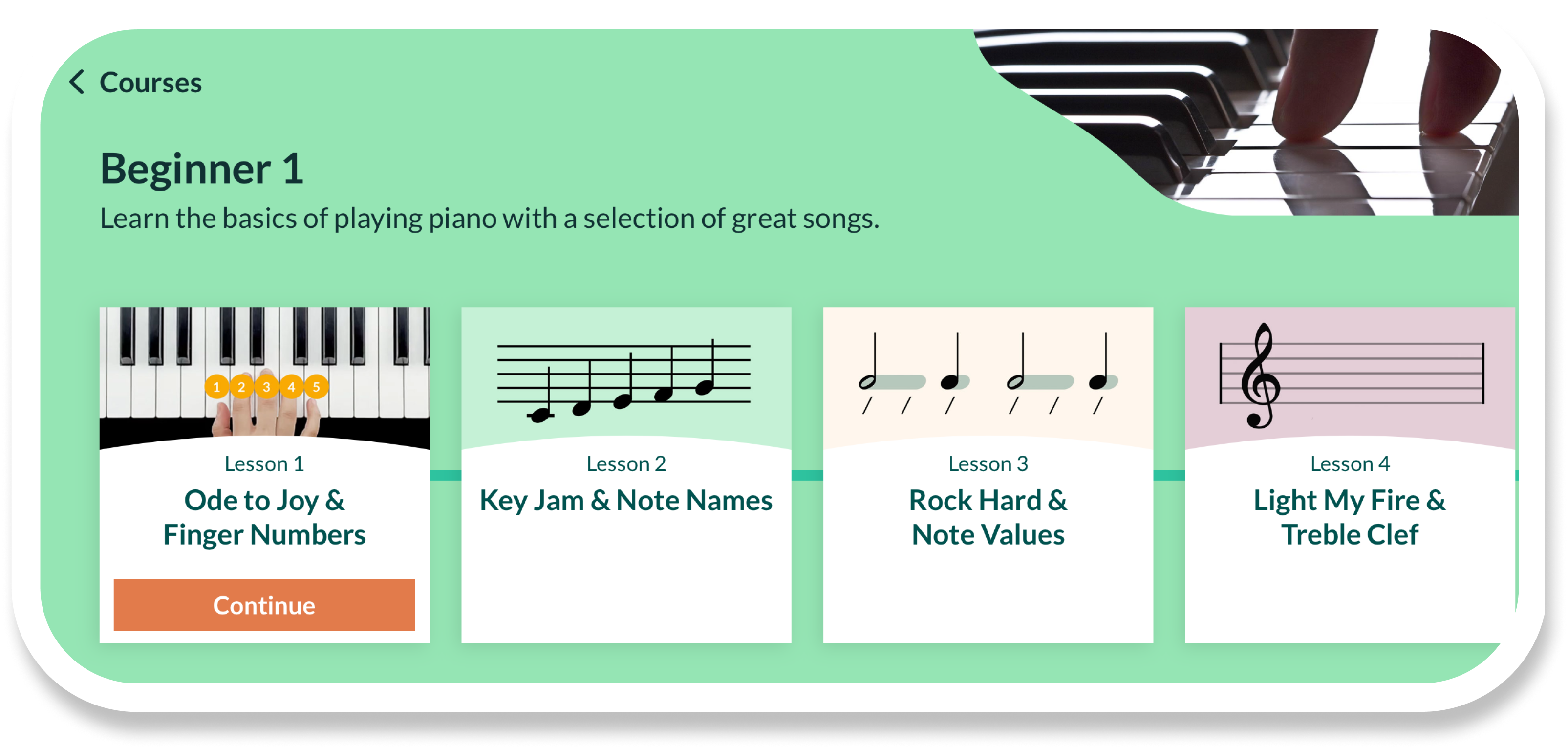
What Causes Learning Plateaus?
The leading cause of this phenomenon is boredom. When you first start out playing the piano, you get a feeling of accomplishment as you quickly learn new methods and improve your skill. However, as you advance in skill level, you do not get the same level of accomplishment as before. When this happens, the stimulation of the reward center in your brain declines rapidly, and you quickly lose your motivation to play.[1]
This is not exclusive to learning the piano – rather, this happens in almost every type of skill development exercise.
Breaking through this invisible barrier is difficult, but it is essential to getting better at the skill and reigniting the spark of passion you had when you first picked up the piano.
However, many people don’t know how to proceed when they cannot seem to improve their skills anymore. No matter how much time or effort they put in, they remain stuck at their level.
If you are one of the people who suffer from this predicament, do not worry – we have got your back. Here’s what you need to do:
How To Overcome Learning Plateaus
Observe Patience
We know that this might seem common sense for anyone looking to overcome learning plateaus. However, we feel that we must include this step due to its vitality in getting you out of the rut.
Patience is key in this regard. Without patience, you may be too frustrated to follow any of the other steps in this article properly. Thus, you must first develop patience before trying out the other steps that we have detailed.
Actively try to remain calm and composed when you practice the piano. If something is proving to be quite difficult to execute properly, do not attack it with full force and intent. If it works, it works. However, if it doesn’t, it can be quite infuriating and might tempt you to quit playing altogether.
If something is causing you difficulties, take a deep breath and avoid it getting to your nerves. Take a short break from the activity, if you must. Resume practicing a few minutes later when you feel more at ease.

Tackle Challenges Head-On
Your progress is easiest and most consistent at the start of picking up the piano. To maintain your steady progress, it can be tempting to avoid challenges that you are scared of failing.
However, this avoidance is counterproductive. When you try to avoid challenges, you stop learning. To overcome the learning plateau, you must tackle all the challenges head-on.
Go and take risks. Play new songs. Try new methods. Take off the training wheels and venture out of your comfort zone. You might embarrass yourself playing a new song, but it will provide for an invaluable learning experience. This is more productive than just playing the one movie soundtrack you know on repeat.
If you are looking for challenges and new things to play on the piano, check out Skoove. The platform offers an intermediate course for beginners where you can learn to play a selection of hits by popular artists, including Amy Winehouse, Coldplay and The Beatles.
However, if you are already familiar with the piano, why don’t give a try to our advanced course? The hit “All Of Me” by John Legend is a great lesson to advanced students!
Set goals
A leading cause of hitting the dreaded learning plateau is not having a set of goals to motivate you in perfecting your skills. Many people refer to your passion for learning a new instrument as a spark – this is rather fitting. You need to constantly take care of that spark and feed it with kindling to keep it from going out. A set of well-defined and achievable goals goes a long way in this regard.
Make sure that you set realistic goals according to your current skill level. Also account for the time you are willing to invest in learning the skill. Having overly optimistic goals can deter you from making progress and negatively impact your learning process.
Set more goals!
Alternatively, you might have set your goals and already achieved them. Congratulations! However, this is not the time to stop. You must set new goals and actively strive to achieve them. Keeping on working on this cycle will allow you to improve your skill, and you might get good enough to play for an audience.
Setting a timeline to achieve your goals is a good way to measure your progress and motivate learning. Analyze how much time it would take for you to perfect a method, then divide it by the time you are willing to invest in the process every week to get a ballpark figure of how much time you should allocate to your goals.
There are two things to keep in mind here. Give yourself some extra time to account for days when you have something important to do and cannot practice the piano. Additionally, try to spread out the time evenly between the practice sessions. You don’t want to play straight for four hours on a day and then not pick it up again for half a week.
Setting your goals and a reasonable timeline for achieving them is a major part of overcoming learning plateaus.
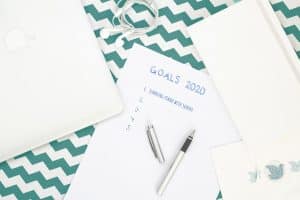
Get Inspired
Setting goals can be a great form of motivation to learn any skill. So is inspiration.Always remember what inspired you to pick the activity up in the first place. A good way to do this is to write it down on a post-it note and sticking it onto the piano. Whenever you sit down to practice, your note will remind you of your motivation to learn.
However, not all of the inspiration must come when you are practicing. Go and see performances of pianists that you admire, either live or on YouTube. Listen to your favorite recordings. These steps will keep you motivated to have the patience that is so vital to continue the process of learning.
Use Suitable Resource Material For Your Skill Level
You might have used some learner’s resource material to get started on your musical journey. However, it is imperative that you know when you should switch to more advanced resources as you progress in skill level. Otherwise, you are going to plateau and have no idea how to move forward.
An excellent tool in this regard is Skoove. Skoove has resource materials for all skill levels. Whether you are just starting on the keys, or if you are a veteran musician, you can take advantage of Skoove. As you complete specific lessons and progress in piano proficiency, the lessons will get more advanced to match.
For example, if you want to gain extra knowledge and practice in sight reading and music theory, you should take a look in our “beginner reading: sight reading” course with many interactive exercises.
Supervision and Feedback
You are not always the best judge of your playing abilities. Sometimes, you do not even realize what you are doing wrong while playing and are not aware of the areas you need improvement in. A set of additional eyes to point out your weaknesses can go a long way to help improve your skills.
However, asking a friend or mentor to specifically point out your areas of shortcoming can deliver a huge hit to your confidence. Additionally, many people prefer practicing alone when there is no one else at home to analyze their playing. However, this does not mean that they can never get feedback about their playing.
With Skoove, you get an automated feedback system at your convenience. It uses the microphone of your smartphone to listen to the notes you play and tells you which parts sound just right and which require some improvement.
Additionally, if you do require a human element to your interaction, you can get their one-on-one support with real piano instructors. They can provide answers to all of your questions to help you in learning the instrument effectively.

Record yourself performing
Asking a third party to observe you while you play is not the only way you can analyze your performance. If you are not comfortable playing in front of someone else yet, you can set up video cameras to record your practice sessions. Then, you can judge the footage yourself and scrutinize your techniques. This will allow you to identify your strengths and weaknesses at your convenience without involving another person.
Recording yourself performing and storing the results can also be a good way to track your progress. Comparing recent video footage with ones you shot when you were first starting will allow you to see just how far you have come. It may just give you the much-needed confidence boost to overcome the learning plateau you seem to be stuck on.
** Focus On Your Weaknesses**
However, just knowing where your weaknesses are is not enough. You have to actively work on them to improve your overall skill so that they are not the bottleneck in your performance.
When you first start on the piano, it can be very tempting just to ignore the parts where you drop the metaphoric ball. However, this is counterproductive to the process of learning. You want to make sure that you work on your weaknesses and overcome them first.
Your weakness in one part might be hindering your progress in another. Therefore, it is extremely important to focus on your weaknesses to be a better player.
This might seem like hard work at first, but it pays off well in the end. Improving on your weaknesses enables you to deliver an overall good performance for a small audience. This, in turn, increases your confidence and gives you the motivation to practice further.
Change It Up
Ok, you followed all these steps, yet you still can’t seem to get out of the learning rut you are in. These tips might have helped you at first, but now it seems that you have plateaued once again.
Don’t worry. When this happens, it is time to change up your habits. Instead of practicing the same things over and over again, pick up new sheet music that excites you. This will break the monotony of learning and give you a more fun way to practice.
With sheet music of hundreds of different tracks, Skoove will ensure that you always have some new and exciting music to learn. If you primarily practice classical tracks from composers such as Beethoven and Mozart, switch things up with chart hits from today’s pop musicians.
You can play pop-classics hits with Skoove, like the mega hit “Counting Stars” by One Republic:
Alternatively, if you routinely play pop hits on the piano, it might be a good idea to give the classical music of yesteryear a try; you never know if you like it if you don’t try it.
A great classical song to play on piano is Mozart’s famous piece: Alla Turca
Try Your Hand At Composing
If you think you have hit a learning plateau, changing your routine might help your case. Composing your own music is an excellent way to do this.
The act of composing releases the creative juices inside your brain and allows you to keep your motivation to learn high.
Skoove will help you to compose your melodies and bring out your inner artist. However, you don’t have to take our word for it. Sign up for free today and try out their 7-day trial with all premium features unlocked!

Conclusion
Hitting plateaus is an inevitable part of every learning process. Therefore, you should not be overly worried when you hit a period of un-productivity when learning the piano. It is possible to overcome learning plateaus with a bit of hard work. You just have to observe a little bit of patience and keep your motivation for learning high. In time, you will get back on track with your learning process. Just keep calm and soldier on!
Try out your free trial of Skoove today!
Author of this blog post:
Sa Bal worked as a freelancer for digital and content marketing agencies for 6 years. She’s now a professional copywriter, writing extensively on topics related to piano.




